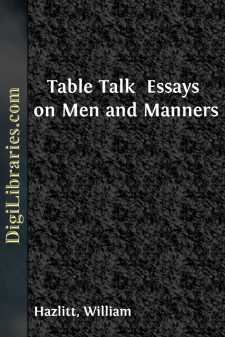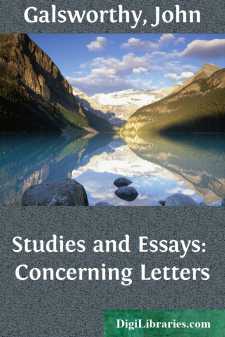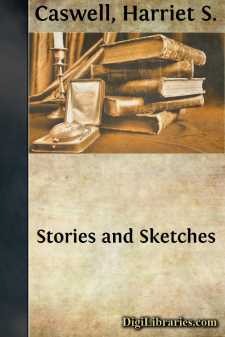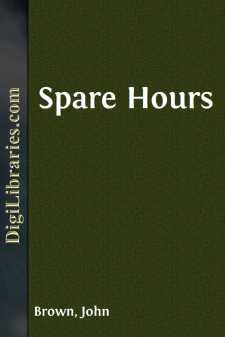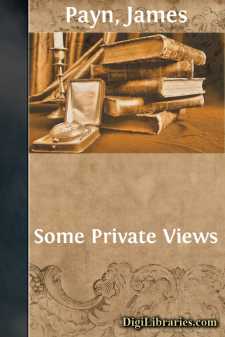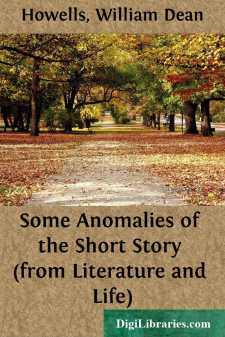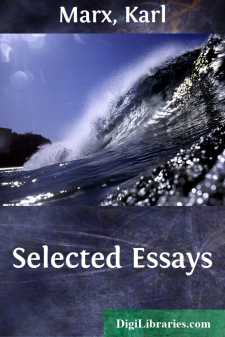Literary Collections
- American 84
- Ancient, Classical & Medieval 14
- Asian 1
- Australian & Oceanian 1
- Canadian 55
- Continental European 121
- English, Irish, Scottish, Welsh 179
- Essays
- General 24
- Letters 46
- Middle Eastern 1
Essays Books
Sort by:
by:
William Hazlitt
ESSAY I. ON THE PLEASURE OF PAINTING 'There is a pleasure in painting which none but painters know.' In writing, you have to contend with the world; in painting, you have only to carry on a friendly strife with Nature. You sit down to your task, and are happy. From the moment that you take up the pencil, and look Nature in the face, you are at peace with your own heart. No angry passions rise...
more...
by:
John Galsworthy
QUALITY I knew him from the days of my extreme youth, because he made my father's boots; inhabiting with his elder brother two little shops let into one, in a small by-street-now no more, but then most fashionably placed in the West End. That tenement had a certain quiet distinction; there was no sign upon its face that he made for any of the Royal Family—merely his own German name of Gessler...
more...
by:
John Galsworthy
A NOVELIST'S ALLEGORY Once upon a time the Prince of Felicitas had occasion to set forth on a journey. It was a late autumn evening with few pale stars and a moon no larger than the paring of a finger-nail. And as he rode through the purlieus of his city, the white mane of his amber-coloured steed was all that he could clearly see in the dusk of the high streets. His way led through a quarter but...
more...
TERRY DOLAN. ome years since circumstances caused me to spend the summer months in a farming district, a few miles from the village of E., and it was there I met with Terry Dolan. He had a short time previous come over from Ireland, and was engaged as a sort of chore boy by Mr. L., in whose family I resided during my stay in the neighborhood. This Terry was the oddest being with whom I ever chanced to...
more...
THE HERO. His name is George, generally speaking. "Call me George!" he says to the heroine. She calls him George (in a very low voice, because she is so young and timid). Then he is happy. The stage hero never has any work to do. He is always hanging about and getting into trouble. His chief aim in life is to be accused of crimes he has never committed, and if he can muddle things up with a...
more...
by:
John Brown
NOTE TO THE AMERICAN EDITION. The author of “Rab and his Friends” scarcely needs an introduction to American readers. By this time many have learned to agree with a writer in the “North British Review” that “Rab” is, all things considered, the most perfect prose narrative since Lamb’s “Rosamond Gray.” A new world of doctors, clergymen, shepherds, and carriers is revealed in the...
more...
by:
James Payn
THE MIDWAY INN. 'The hidden but the common thought of all.' The thoughts I am about to set down are not my thoughts, for, as my friends say, I have given up the practice of thinking, or it may be, as my enemies say, I never had it. They are the thoughts of an acquaintance who thinks for me. I call him an acquaintance, though I pass as much of my time with him as with my nearest and...
more...
One of the most amusing questions concerning the short story is why a form which is singly so attractive that every one likes to read a short story when he finds it alone is collectively so repellent as it is said to be. Before now I have imagined the case to be somewhat the same as that of a number of pleasant people who are most acceptable as separate householders, but who lose caste and cease to be...
more...
by:
Oscar Wilde
HOW THEY STRUCK A CONTEMPORARY There is such a thing as robbing a story of its reality by trying to make it too true, and The Black Arrow is so inartistic as not to contain a single anachronism to boast of, while the transformation of Dr. Jekyll reads dangerously like an experiment out of the Lancet. As for Mr. Rider Haggard, who really has, or had once, the makings of a perfectly magnificent liar,...
more...
by:
Karl Marx
A CRITICISM OF THE HEGELIAN PHILOSOPHY OF RIGHT As far as Germany is concerned the criticism of religion is practically completed, and the criticism of religion is the basis of all criticism. The profane existence of error is threatened when its heavenly oratio pro aris et focis has been refuted. He who has only found a reflexion of himself in the fantastic reality of heaven where he looked for a...
more...


